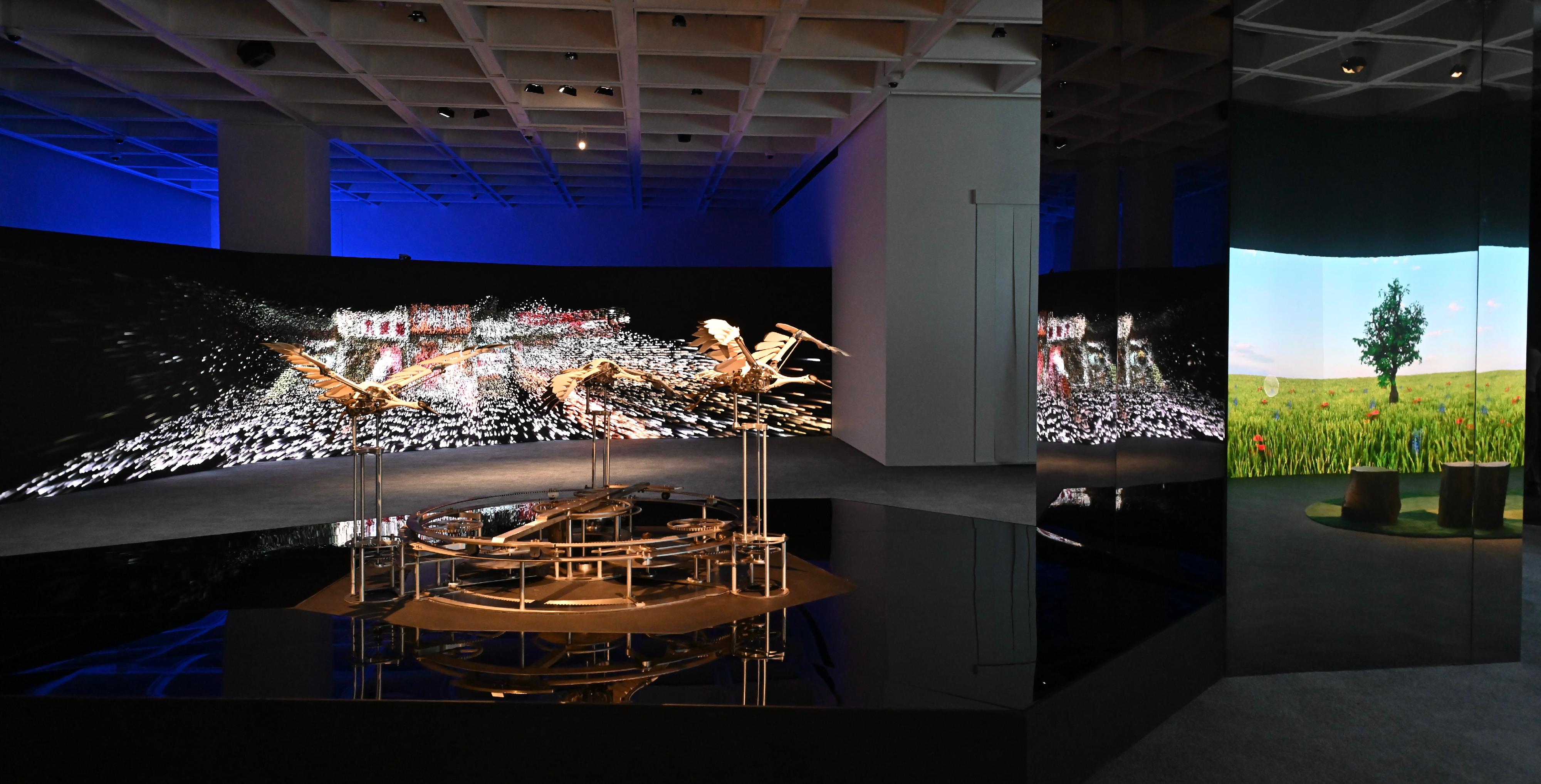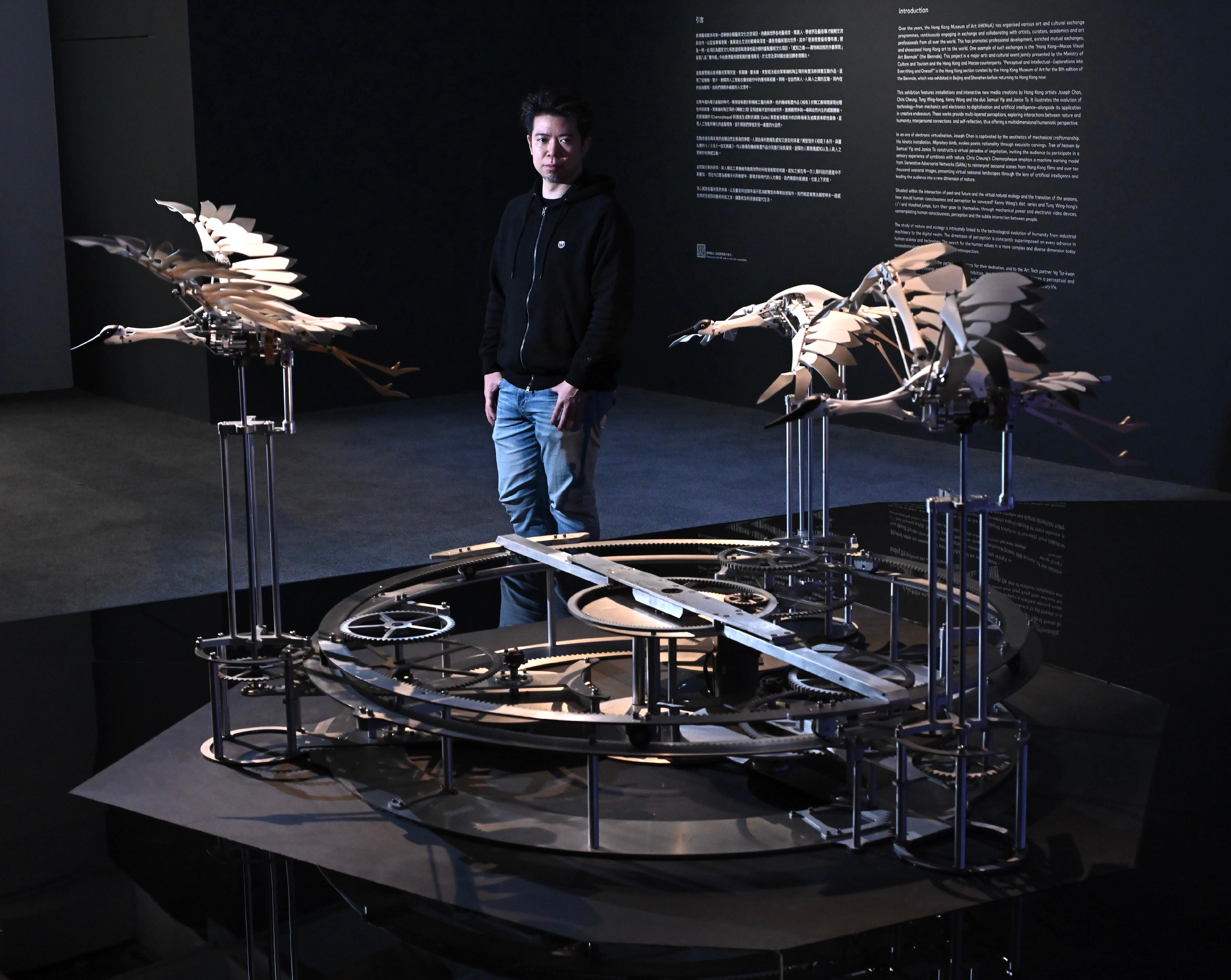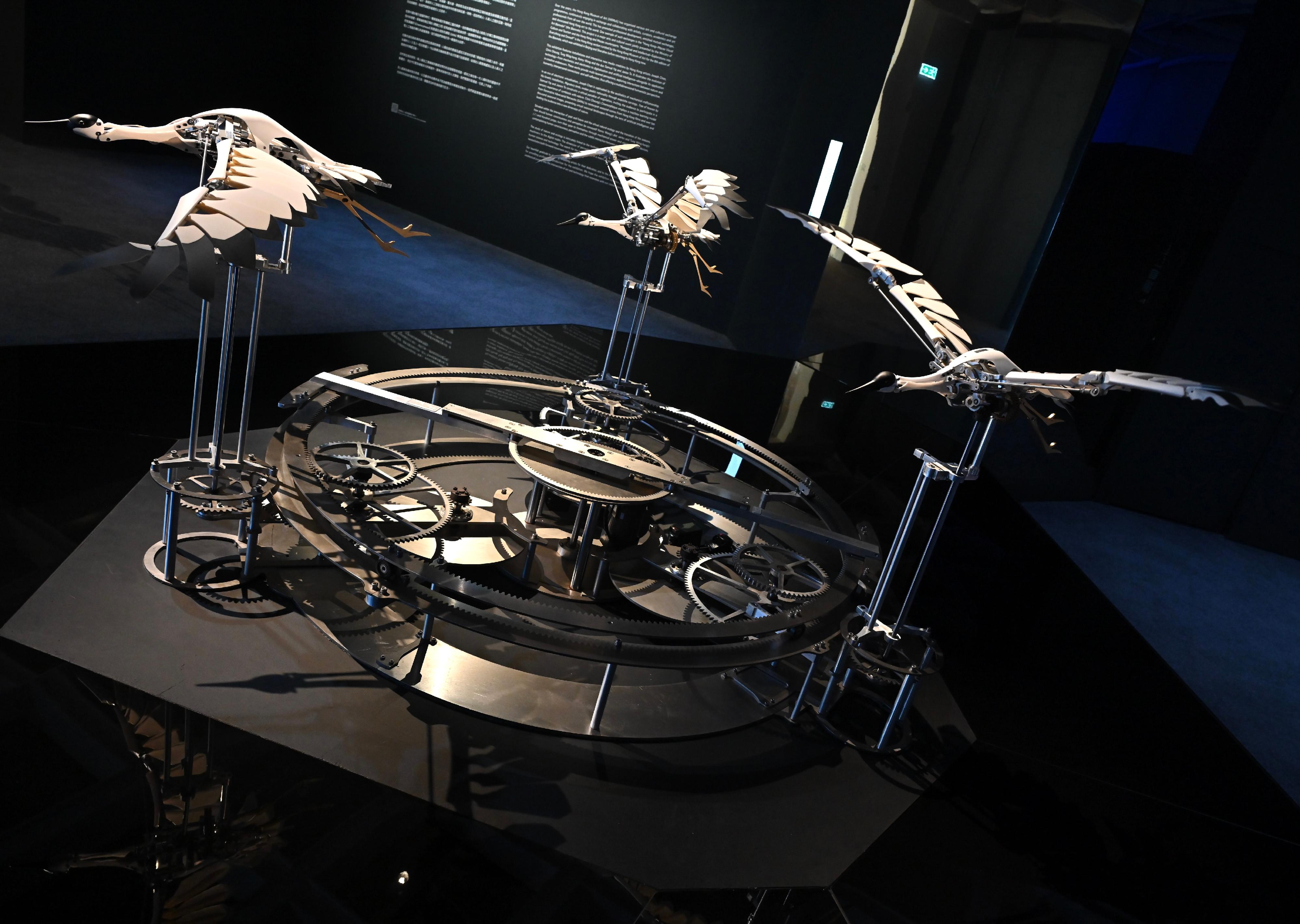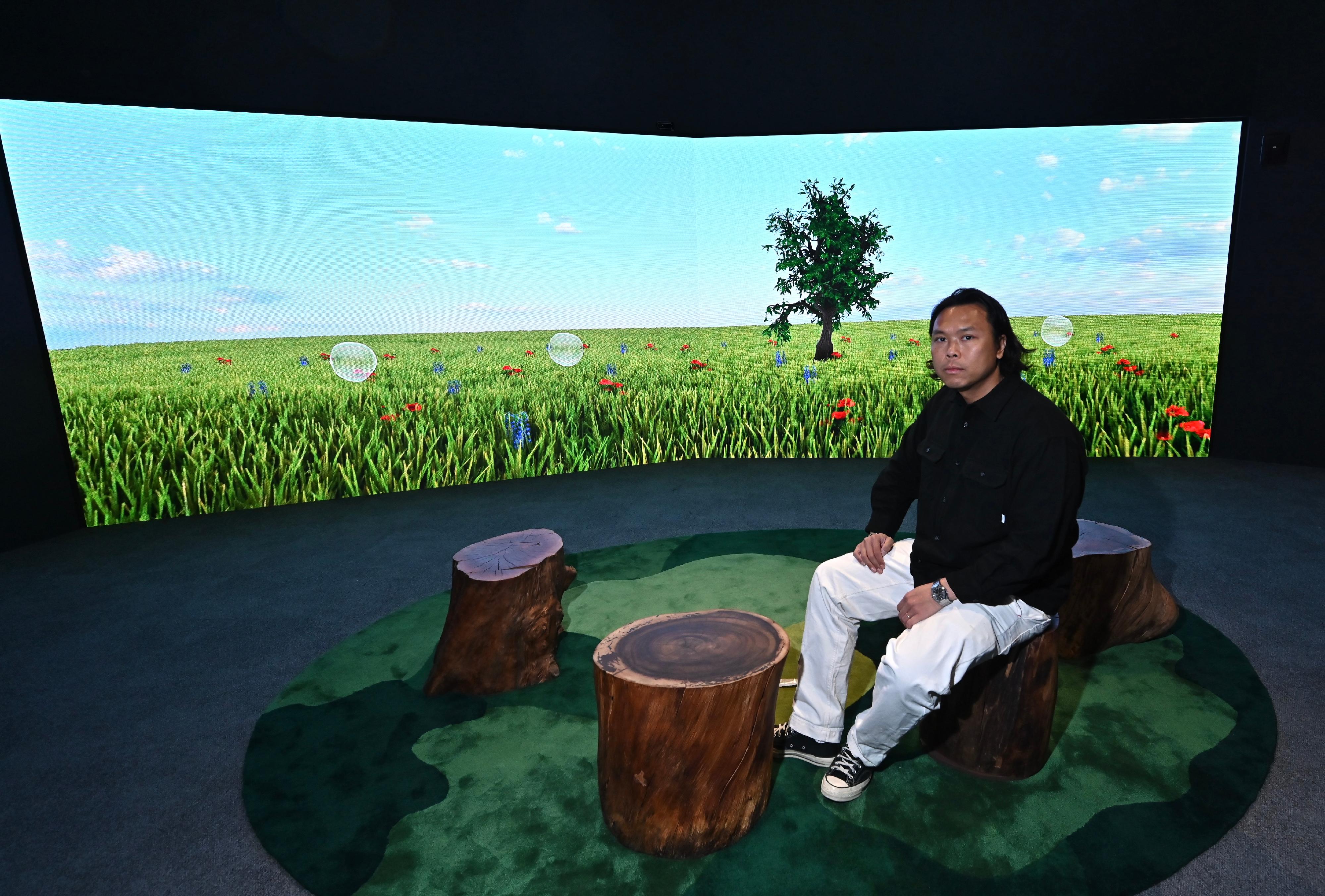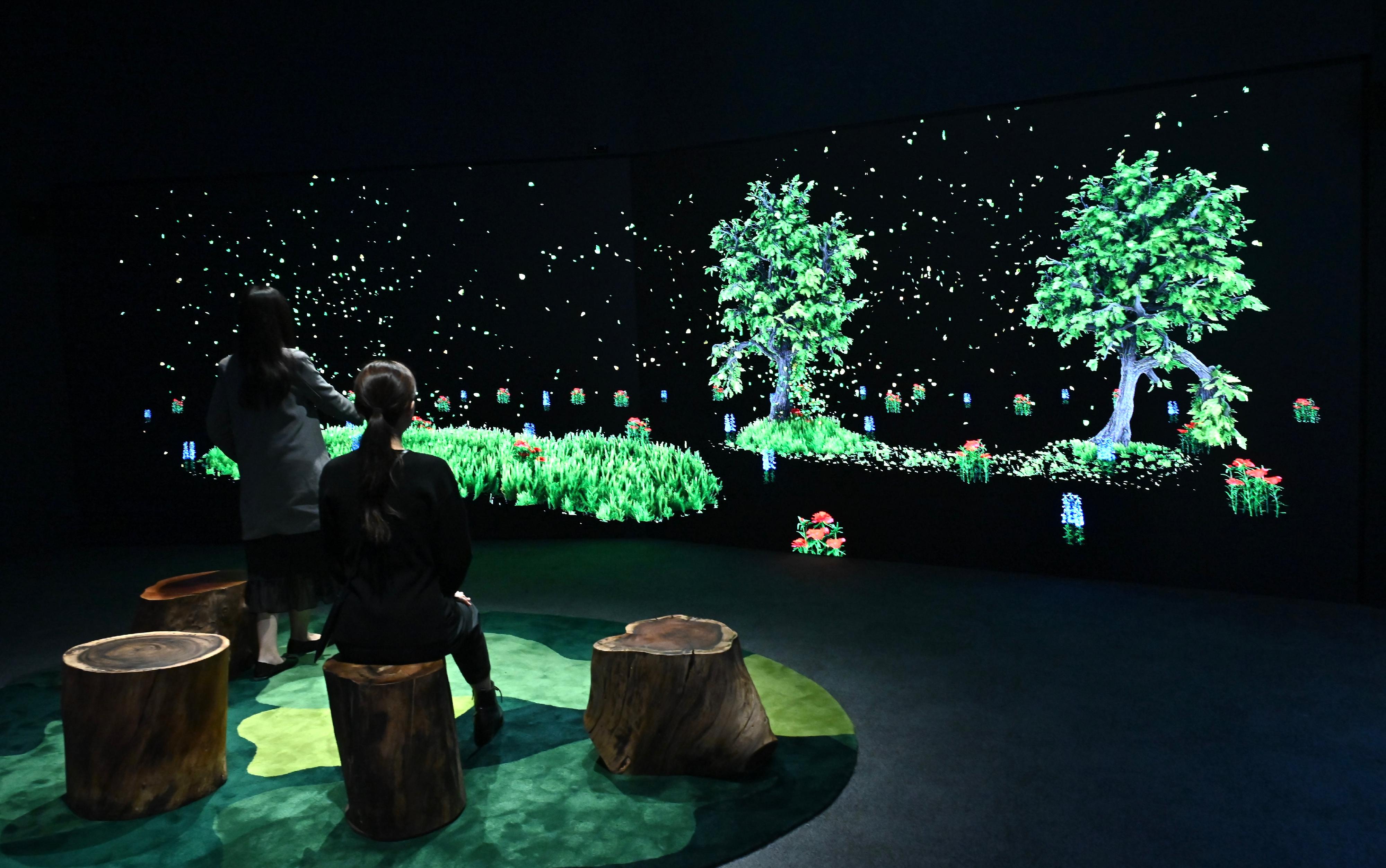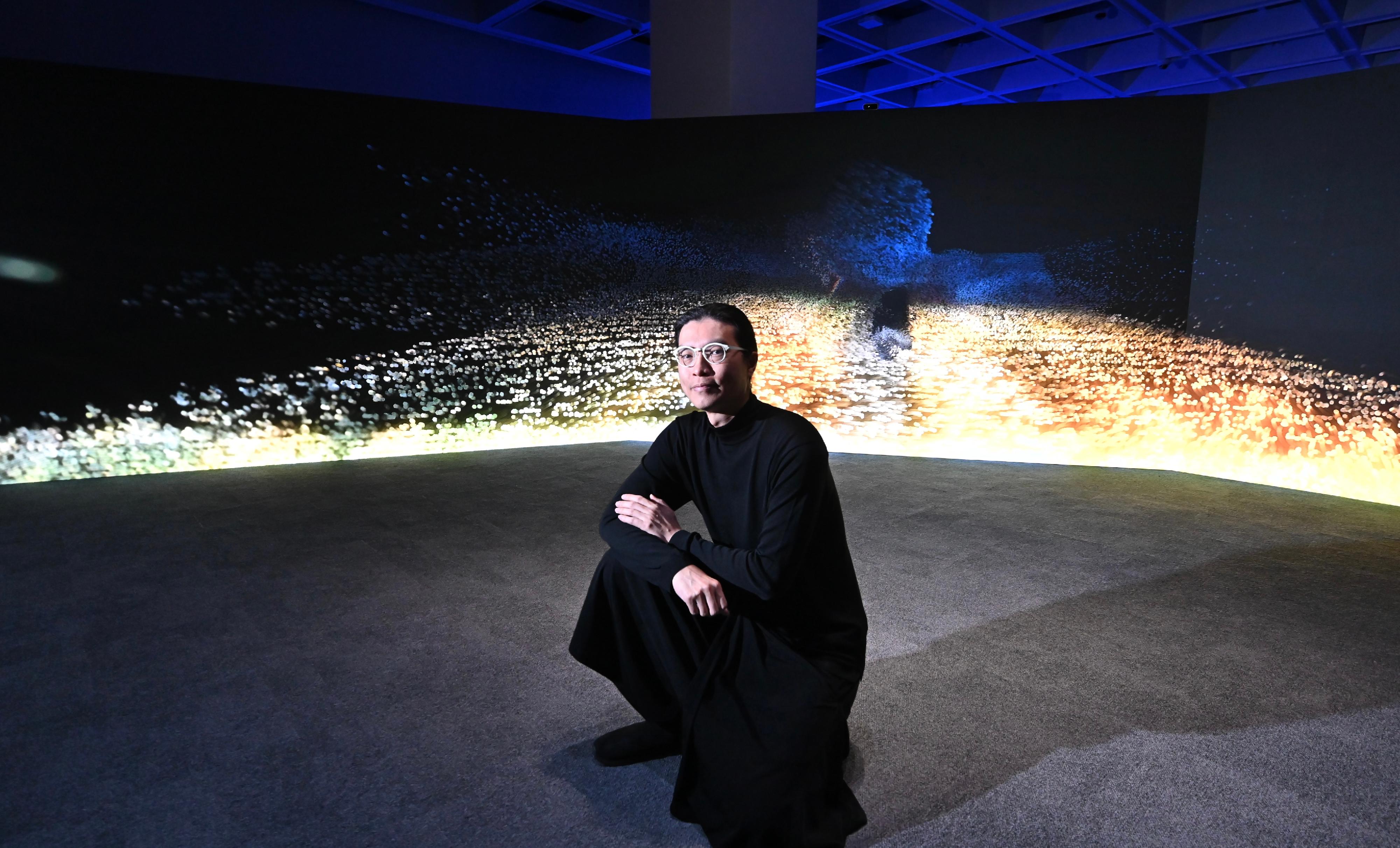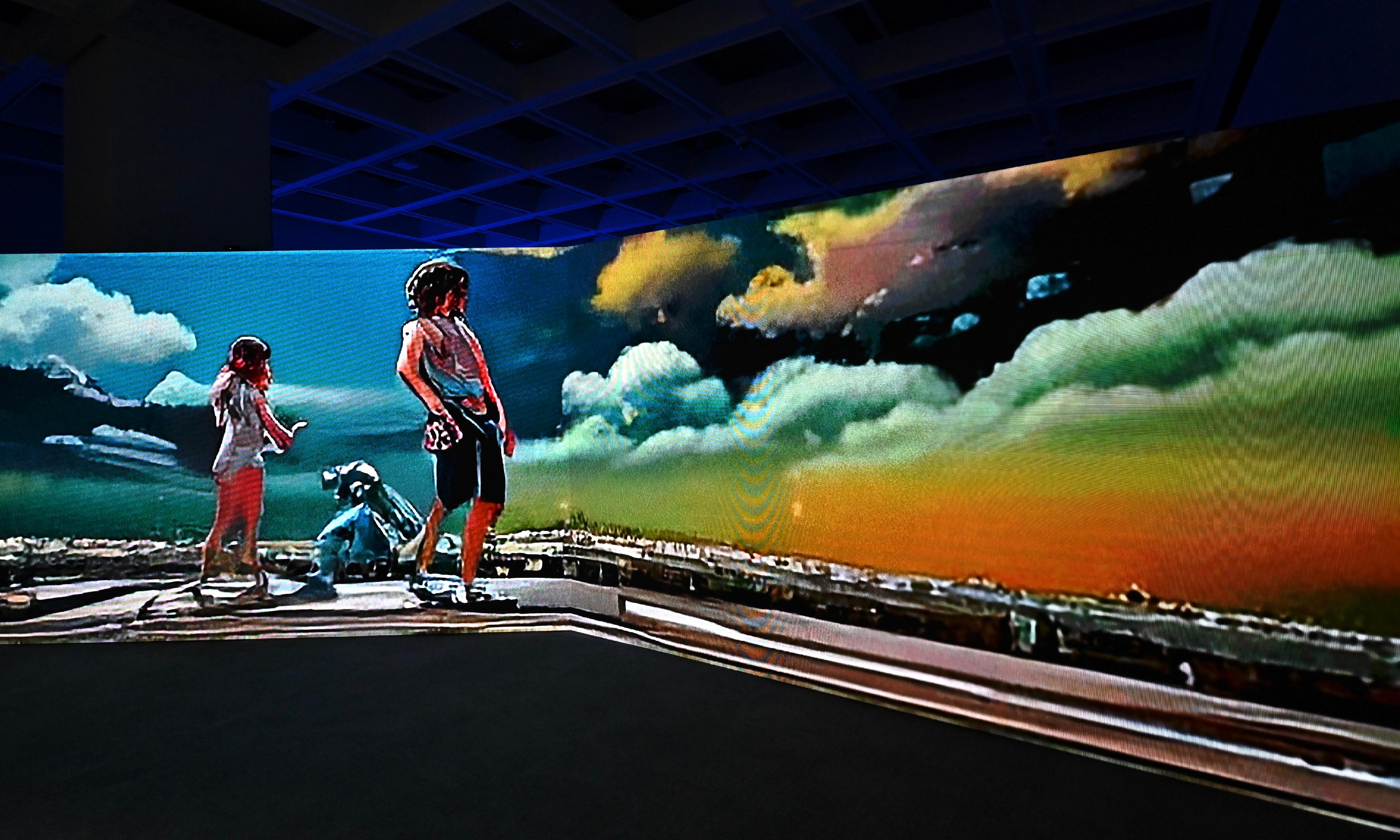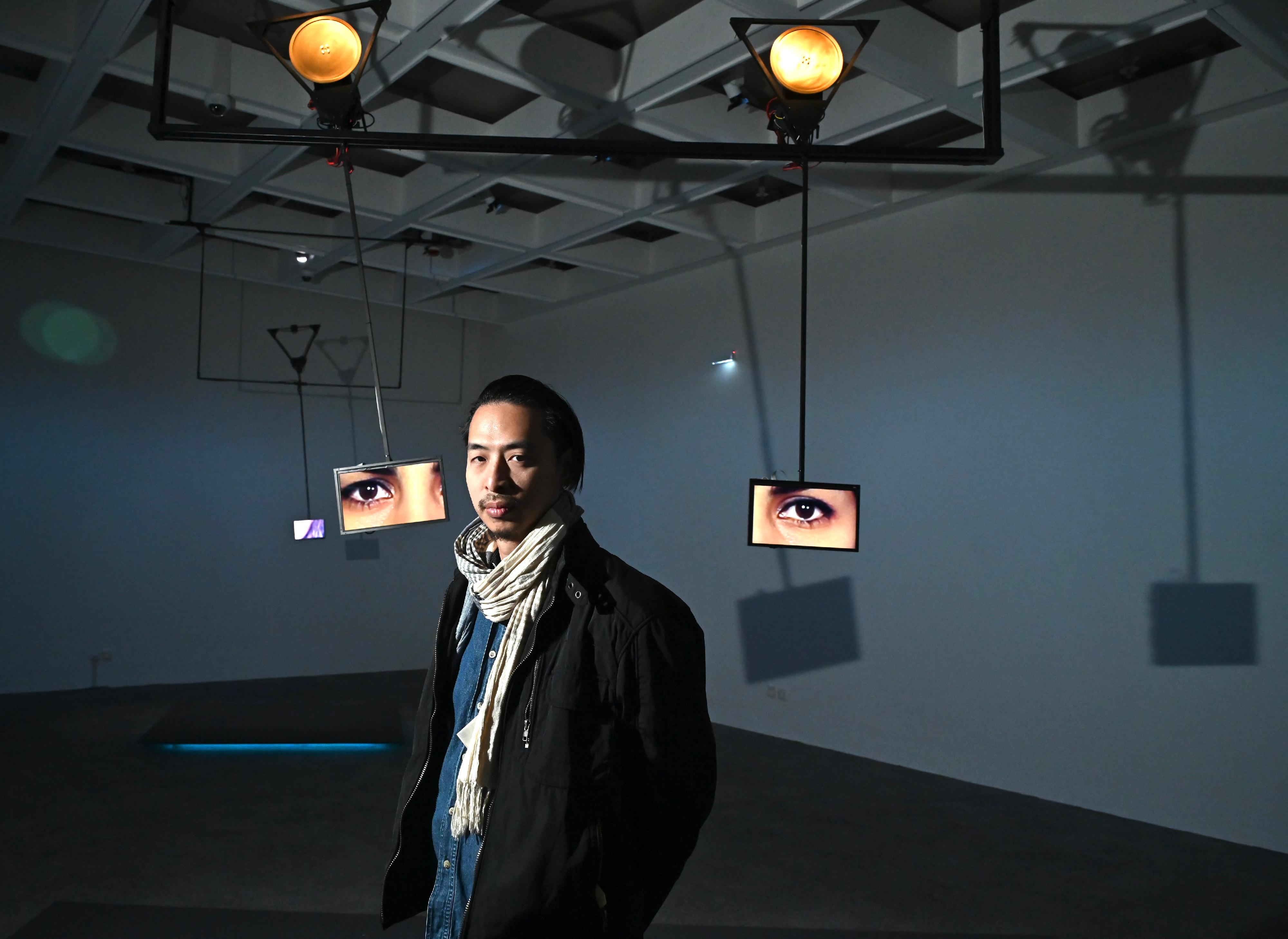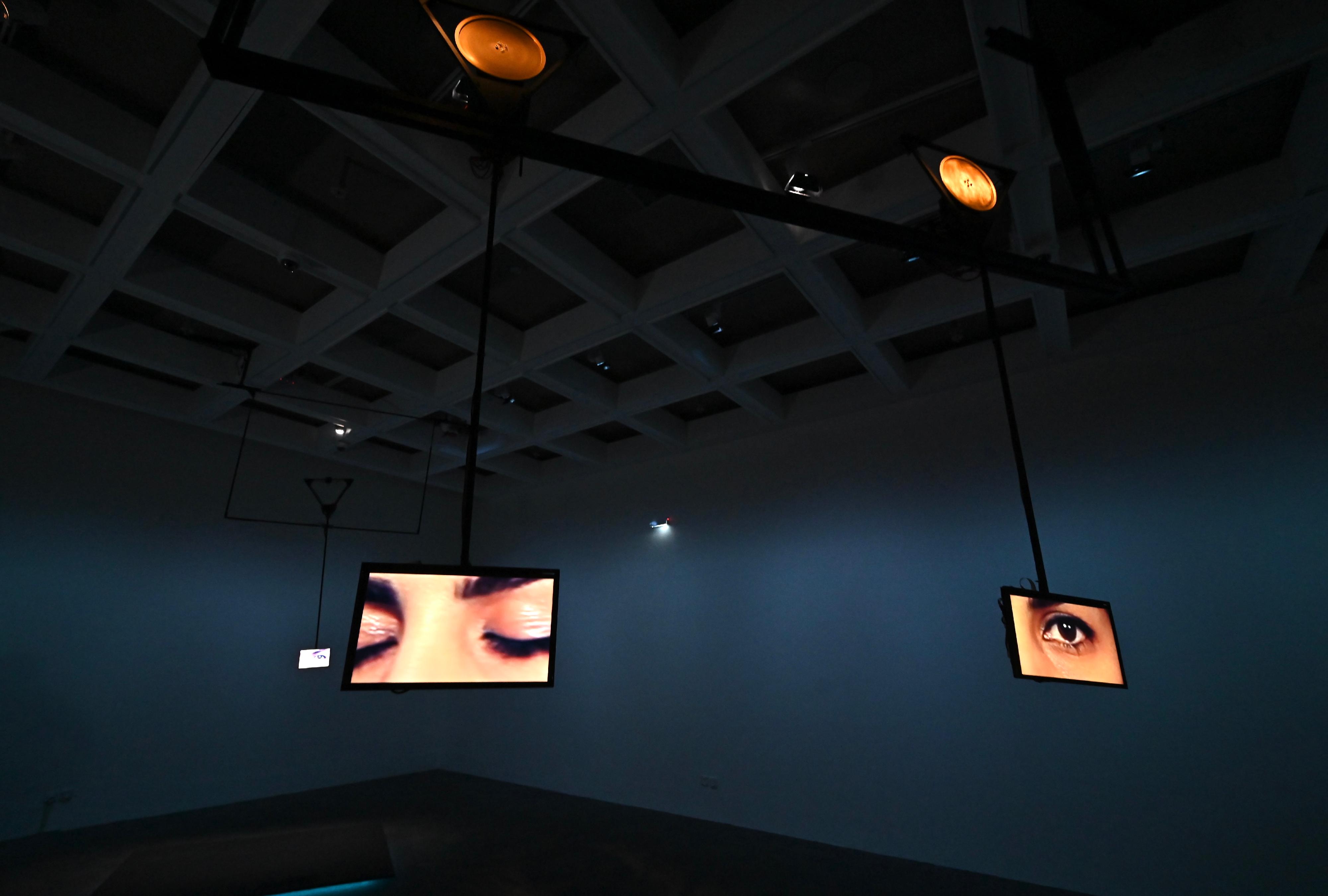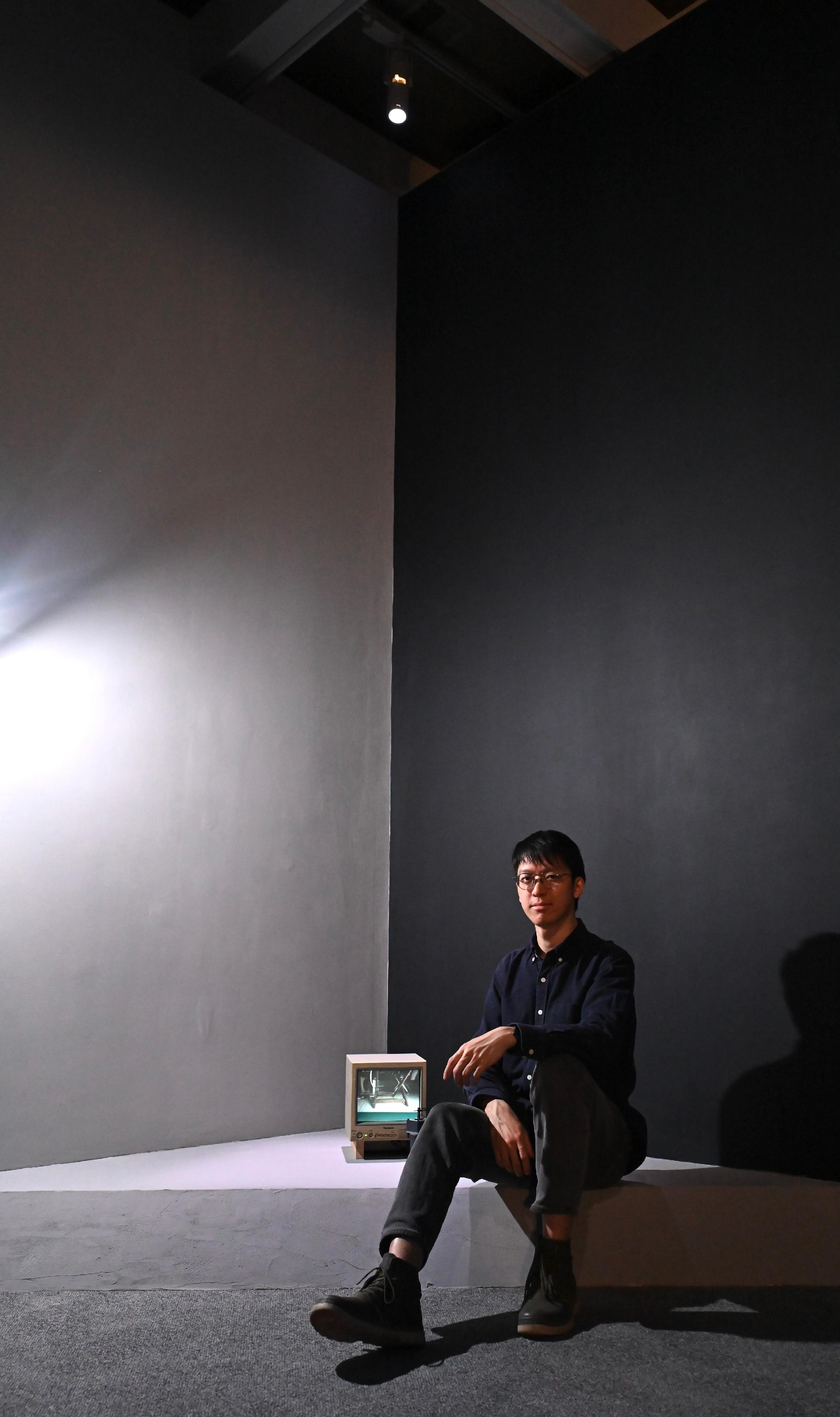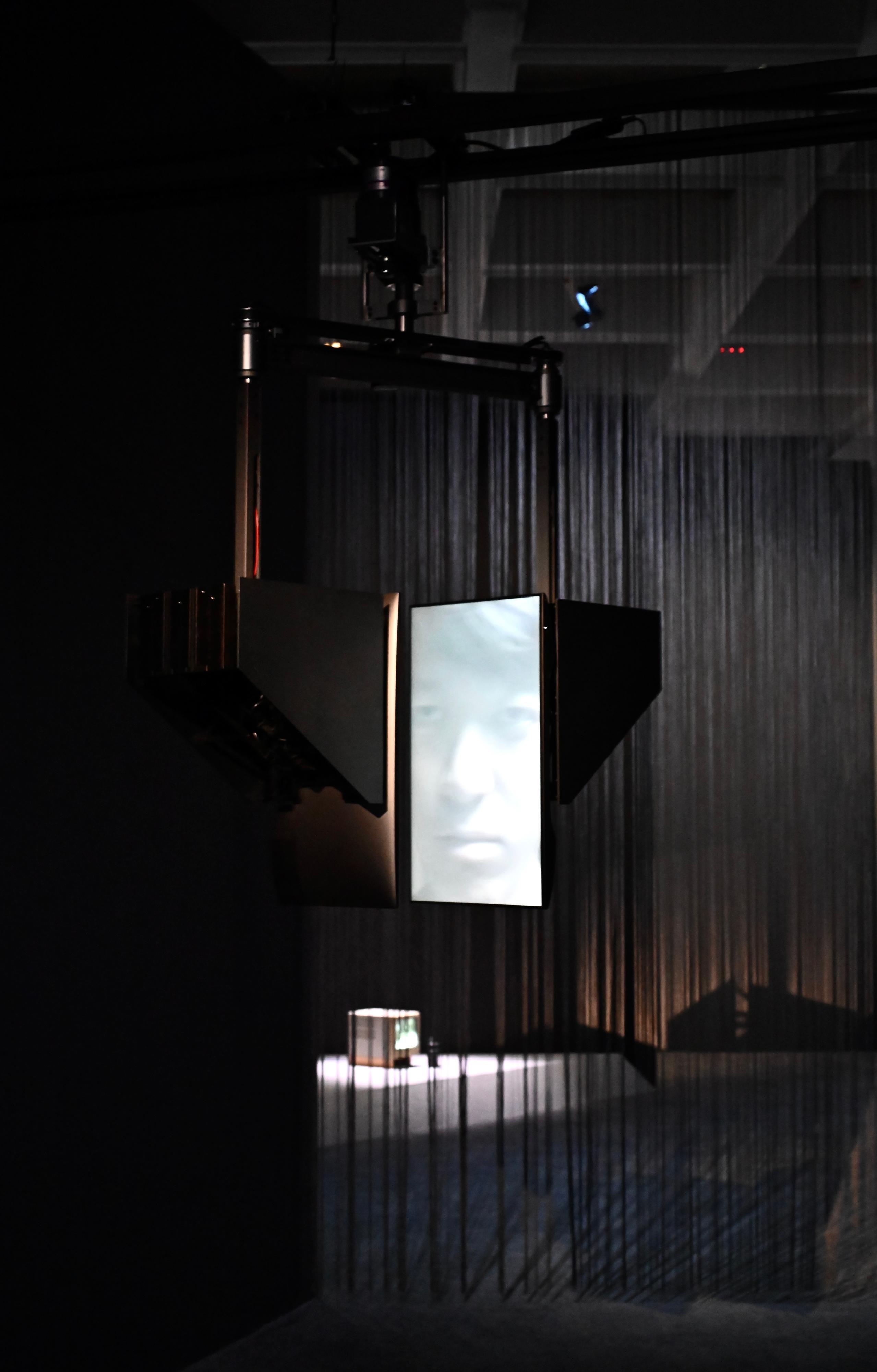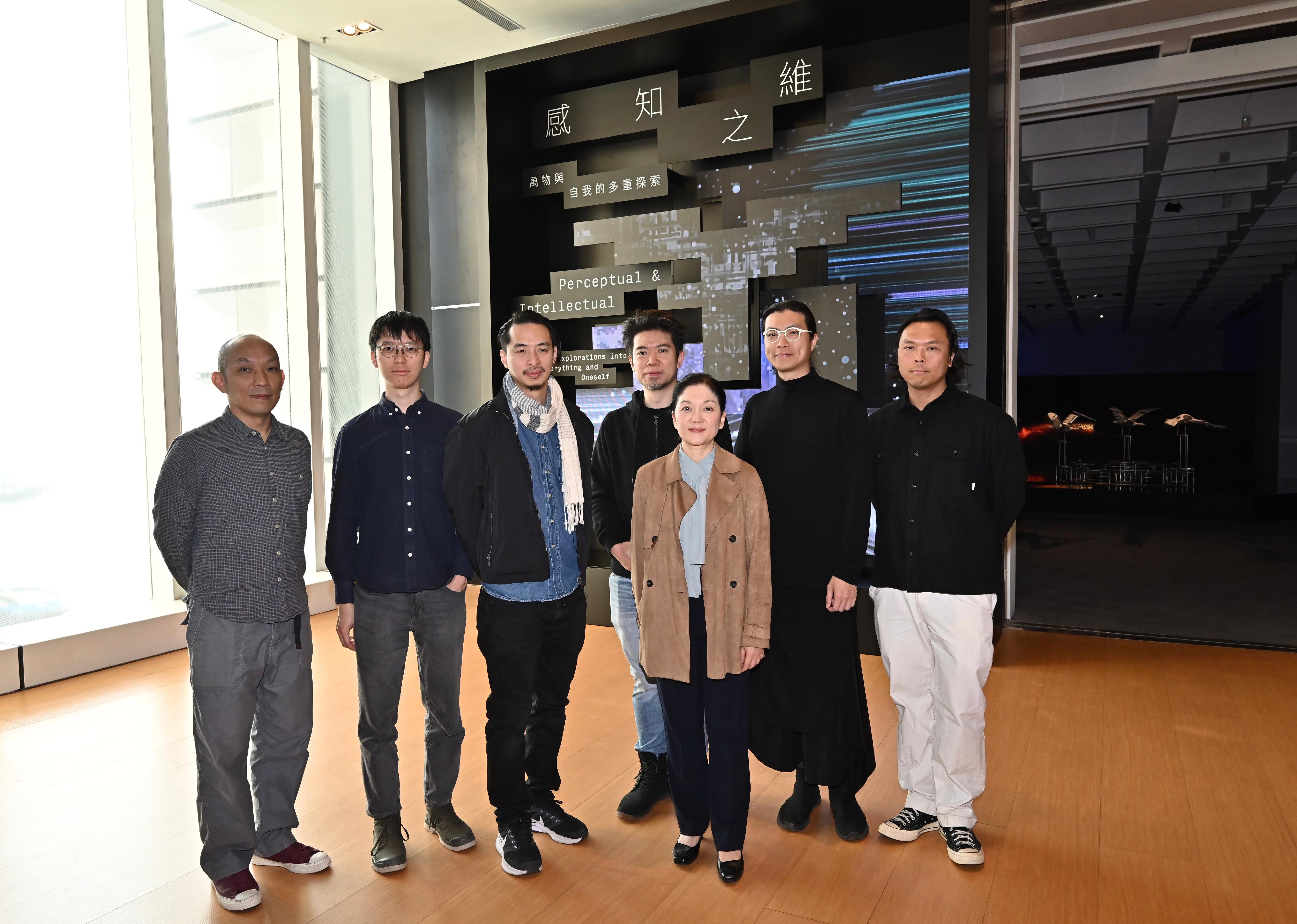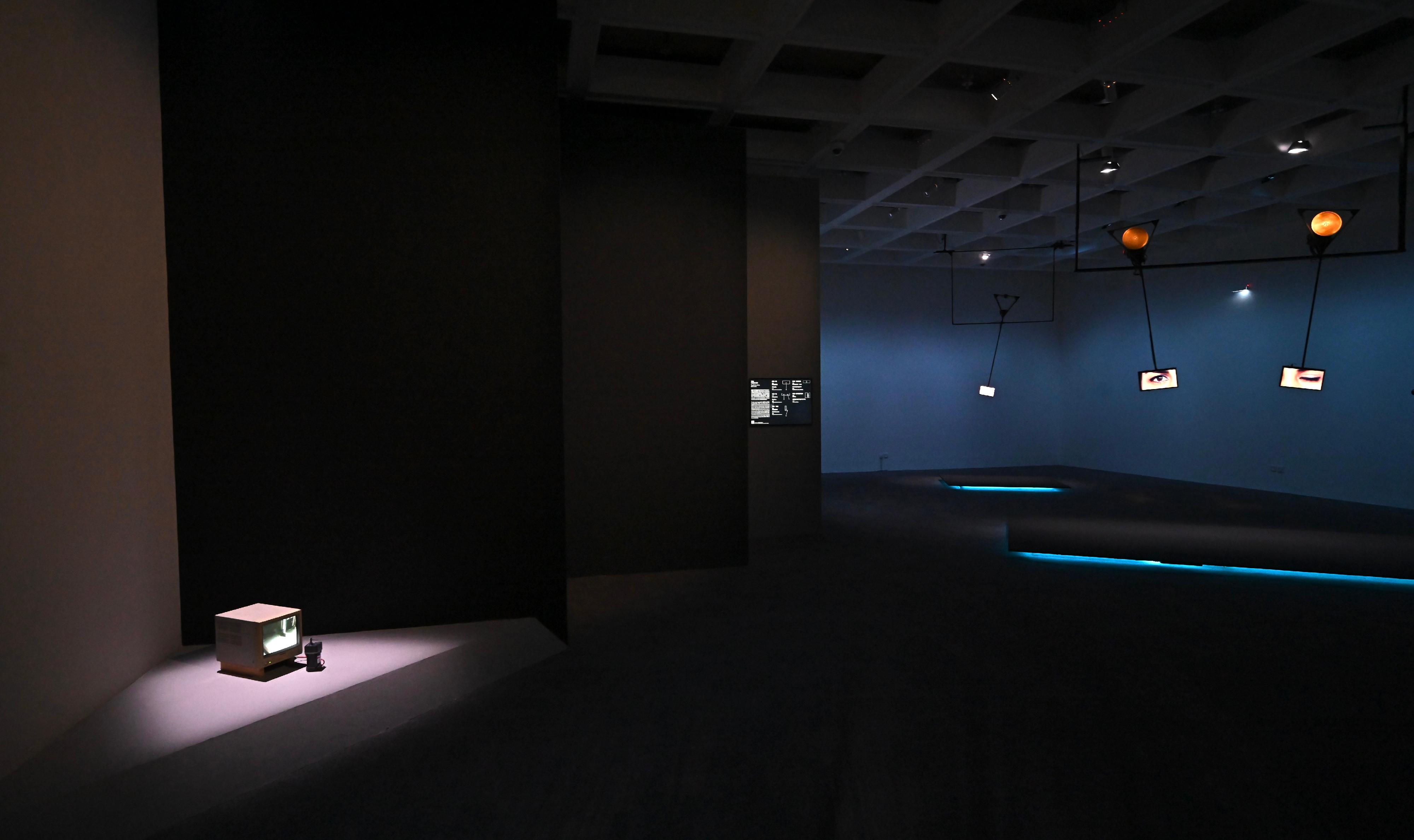HKMoA's "Perceptual and Intellectual" exhibition connects art tech with contemporary life (with photos)
******************************************************************************************
The exhibition is the Hong Kong section curated by the HKMoA for the eighth edition of the Hong Kong - Macao Visual Art Biennale, exhibited in Beijing and Shenzhen in 2022 before returning to Hong Kong this year. The Biennale is a major arts and cultural event jointly presented by the Ministry of Culture and Tourism and the Hong Kong and Macao counterparts.
The exhibition features artworks by six Hong Kong artists - Joseph Chan, Chris Cheung, Tung Wing-hong, Kenny Wong, and the duo Samuel Yip and Janice To. Drawing inspiration from a wide range of themes including migratory birds, trees, seasonal changes, and movie scenes, the artists infuse their creations with modern technology. The artworks also interact with the audience to explore interactions between nature, virtuality, humanity, interpersonal connections, and self-reflection, offering a multidimensional humanistic perspective. The museum also invited multimedia artist Ng Tsz-kwan as the Art Tech partner for providing professional production for the exhibition, enabling visitors to embark on a perceptual and intellectual journey into the intersection of art and technology.
Hong Kong is situated on the southern coast of China, where its wetlands, woodlands, shrublands and coastal areas provide suitable habitats for various bird species. Inspired by the natural wonder of migratory birds, artist Joseph Chan, who studied mechanical engineering, created the kinetic installation named "Migratory birds". Navigating the realms of engineering, science and art, three lifelike formations of birds and their postures reflect the artist's keen observation of the natural ecosystem. The work evokes poetry in rationality through exquisite carvings.
"Tree of heaven" is a multimedia installation created by new media artists Samuel Yip and Janice To, who specialise in audio-visual and installation art. The duo fuses the realms of animation, interactive programme, and imagination to contemplate the relationship between human activity and the natural environment, as well as the concepts of usefulness and uselessness through audience interaction with a virtual nature. The artists also placed a number of wood logs made from recycled tree trucks in Hong Kong in this installation. Echoing the image of the tree of heaven in this work, the audience's stillness or movement around the wood logs can influence and shape the virtual natural world depicted, contemplating the meaning of uselessness and the symbiosis with nature portrayed in the artwork.
Chris Cheung is best known for his installation art and audio-visual performances. His artwork "Cinemorpheque" explores the concept of a future immersive cinematic experience inspired by scenes from classic Hong Kong films - "Lavender", "Happy Together", "Hero", and "The Grandmaster" - which showcase the four seasons. This work employs a machine learning model from Generative Adversarial Networks to study over 10 000 seasonal and different scenes from various films before generating the virtual scenes and morphing visuals. Presented in abstract particles, the artwork overlays the viewer's virtual three-dimensional silhouette onto the generated landscapes, challenging the boundaries between time and space, and the physical and virtual worlds, immersing viewers in a new landscape envisioned by artificial intelligence. The artwork presents virtual seasonal landscapes through the lens of artificial intelligence and leads the audience into a new dimension of perception.
Artist Kenny Wong's works explore the delicate relationship between daily experiences and perceptual stimuli by hybridising analogue and digital representations. His work, the "dist." series, is inspired by fleeting eye contact with strangers in the city and the indefinite variables in relationships. "Dist." is an abbreviation for "distance", widely used in mathematics and programming. In this series, it represents both relational and mathematical distance. The work interprets the dynamics of pendulum movement, while one of the mechanical video installations, "dist.duo", also incorporates digital sensors, with custom software deliberately altering the balance and deregulating the rhythms of the pendulums. By combining rational and irrational rules, the motion and visuals interweave in a dynamic pattern, reflecting the artist's take on human relationships.
Tung Wing-hong, who was given the Award for Young Artist (Media Arts) at the 18th Hong Kong Arts Development Awards in 2024, has two artworks on display in the exhibition. "i / i" is a video and kinetic installation of two hanging, rotating monitors, each playing a video of the artist gazing at his own reflection in a mirror in an attempt to re-experience and confront the "self". Although the mirror images reflect the same individual, a sense of strangeness grows over time, highlighting the differences between the reflected and the real. In Tung's other video and kinetic installation, "Hundred jumps", a motor-driven cable tie repeatedly lashes the screen. The legs displayed on the screen are trapped in an endless cycle of repetitive jumping. By combining virtual imagery with the physical act of whipping, the work invites viewers to imagine their own legs jumping to avoid the strikes, exploring a multidimensional human perception that intertwines viewing, imagination and spatial experience.
The exhibition will run from December 20 at the Hong Kong Art Gallery on the second floor of the HKMoA (10 Salisbury Road, Tsim Sha Tsui, Kowloon). Admission is free. For details of the exhibition, please visit the website at hk.art.museum/en/web/ma/exhibitions-and-events/perceptual-and-intellectual.html or call 2721 0116 for enquiries.
Ends/Thursday, December 19, 2024
Issued at HKT 19:20
Issued at HKT 19:20
NNNN





